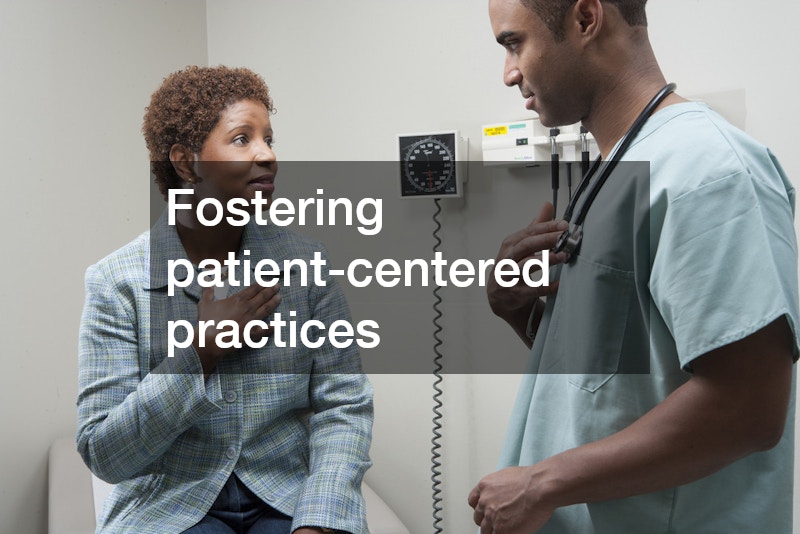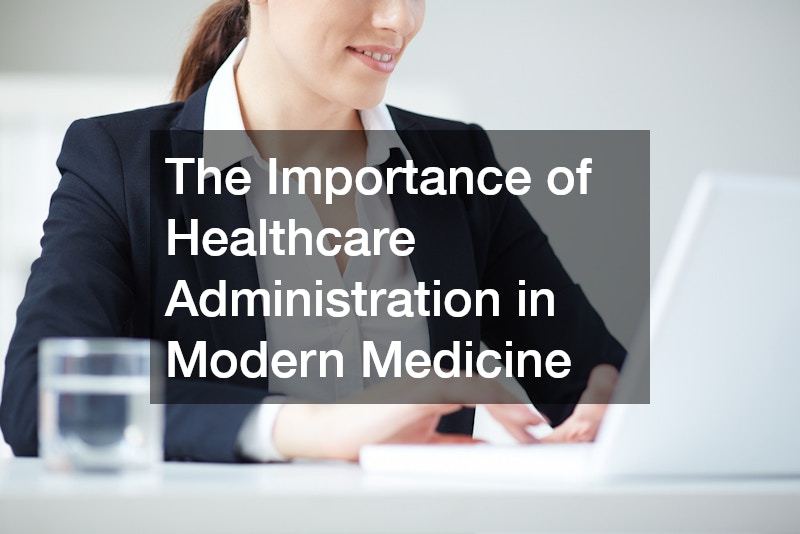Healthcare administration plays a vital role in modern medicine by ensuring the efficient delivery of healthcare services and safeguarding patient safety. This field acts as the backbone of healthcare systems, enabling medical professionals to focus on providing care while administrators manage operations. By integrating strategic management and patient-centered practices, healthcare administration works to enhance the overall functioning and quality of medical services.
How Does the Healthcare Administration Impact Patient Care?
Streamlining Operations and Efficiency
Healthcare administrators are pivotal in optimizing resources and systems to ensure that healthcare facilities operate smoothly. Their strategic insights help in scheduling, staffing, and resource allocation, minimizing disruptions and delays. By streamlining operations, administrators ensure that patient care is efficient and resources are utilized optimally.
These professionals work diligently to implement technology and process improvements that significantly reduce administrative overhead. For example, the introduction of electronic health records has enhanced accessibility and accuracy, allowing for quicker patient processing. This approach not only increases efficiency but also allows healthcare providers to focus more on patient care.
Moreover, administrators often engage in continuous improvement initiatives to refine operational processes. This proactive stance ensures that facilities are equipped to adapt to changing healthcare demands. Thus, administrators become instrumental in driving the success and effectiveness of healthcare delivery systems.
Ensuring Compliance and Safety Standards
Healthcare administrators are tasked with maintaining compliance with myriad healthcare regulations and safety standards. Their role involves keeping abreast of legislative requirements and ensuring that the healthcare facility adheres to these protocols. This vigilance protects patients and improves the quality of care delivered.
Compliance extends beyond legal mandates to include adherence to ethical standards and infection control measures. By implementing rigorous training and monitoring programs, administrators foster a culture of safety and accountability. This is essential in preventing adverse events and ensuring patient trust in the healthcare system.
Additionally, healthcare administrators engage with regulatory bodies and accreditation organizations to maintain certification and uphold quality benchmarks. Their efforts in this area ensure that the facility meets national and international standards of excellence. As a result, administrators play a critical role in fostering an environment where patient well-being is the top priority.
Enhancing Patient Satisfaction and Experience
Healthcare administration also focuses on developing patient-centric approaches to enhance satisfaction and experience. By prioritizing patient feedback, administrators can implement changes that improve service delivery and patient engagement. This leads to higher levels of patient satisfaction and trust in the healthcare system.
Incorporating technology and innovative practices, such as telemedicine and personalized care plans, allows administrators to meet diverse patient needs. Healthcare facilities that excel in administration often see improvements in patient outcomes and loyalty. This demonstrates the substantial impact of adept healthcare administration on the patient experience.
What Are the Essential Skills for Effective Healthcare Administration?
Leadership and Management Skills
Leadership and management skills are crucial for healthcare administrators to lead their teams effectively and manage healthcare facilities efficiently. Strong leaders inspire and guide their teams towards a common goal, fostering collaboration and innovation. These skills also allow administrators to address challenges proactively and implement meaningful improvements.
In addition, effective management involves strategic planning, coordination, and resource allocation to optimize organizational performance. Administrators with strong management acumen can navigate complex healthcare environments and adapt to evolving needs. They employ decision-making frameworks that balance patient care with operational efficiency.
By cultivating a culture of accountability and continuous learning, healthcare leaders can enhance team performance and patient outcomes. Leadership in healthcare administration goes beyond operational duties and extends to building resilience and adaptability in times of change. Through strong leadership, administrators lay the groundwork for successful healthcare delivery.
Financial Acumen and Resource Management
Having a firm grasp of financial acumen is imperative for healthcare administrators to manage budgets and resources efficiently. Financial knowledge enables them to make data-driven decisions that optimize spending and investment in patient care. Effective resource management involves balancing cost containment with quality enhancement.
Administrators are responsible for developing financial strategies that support sustainable operation and growth. This includes accurate budgeting, forecasting, and cost-control measures that ensure fiscal stability. By leveraging financial expertise, they also identify opportunities for innovation and service expansion.
Moreover, prudent resource management involves strategic partnership and procurement decisions that maximize value and efficiency. Robust financial management equips administrators to allocate resources where they are most needed, minimizing waste and supporting patient care priorities. These capabilities are essential for navigating the complex financial landscape of modern healthcare systems.
Healthcare administration is indispensable in modern medicine, providing strategic management and fostering patient-centered practices. Administrators’ skills in streamlining operations, ensuring compliance, enhancing patient satisfaction, and exhibiting strong leadership prove essential in advancing healthcare quality. Their contributions are vital to the seamless delivery of medical services, ensuring optimal patient care and satisfaction in today’s dynamic healthcare environment.
.





